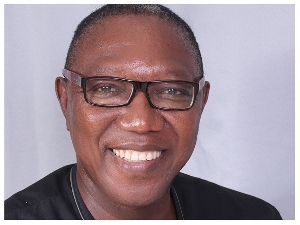Accra, Aug. 27, GNA - The Private Enterprise Foundation (PEF) has initiated a programme to train managers of Small and Medium Scale Enterprises (SMEs) in Ghana, Sierra Leone and The Gambia to enhance their capacity to access financial assistance from banks. The programme, titled: "Investment Financing for Small and Medium Enterprises and Financial Institutions in Ghana, Sierra Leone and The Gambia" is to receive financial and technical assistance from the European Union 96 Africa-Caribbean-Pacific (EU-ACP) Proinvest. The programme is aimed at fostering better understanding between SMEs on the one hand and the banks and non-bank financial institutions on the other for the provision of timely resources for investment in the three countries.
Dr Osei Boeh-Ocansey, Director General of PEF, announced the initiative at a press briefing in Accra.
He said the programme would be carried out by the PEF; Sierra Leone Indigenous Business Association (SLIBA) and The Gambia Public Sector and Civil Society Interface Capacity Building Project, with PEF as the lead partner.
Dr Boeh-Ocansey observed that a key factor that made the SMEs unable to access financial assistance was the lack of understanding in the operations of the banks and vice versa.
Consequently, efforts by the SMEs at accessing loans from the banks often took too long a time or they were completely rejected, making the search for funding a frustrating experience. Dr Boeh-Ocansey said the complexity and the costliness of the process of accessing financial assistance militated against the smooth operation and growth of the SME sector. This problem went to the extent that it denied both the SMEs and the financial institutions enormous benefits that could be derived if the sector were able to initiate well-funded business ventures or readily expanded their existing businesses. Dr Boeh-Ocansey said the programme would equip management and executive of banks and trade sector finance institutions with best practices in credit evaluation and scoring. It would also train managers and executives of SMEs in the principles, practices and techniques in packaging financial requests to the banks.
According to the Director General, the programme would be implemented in four phases, with the pilot project now taking place in Ghana.
Two workshops, each in The Gambia and Sierra Leone would be organised, respectively, and would be followed by a sub-regional workshop in Accra with the participants of the two earlier workshops attending.
Selected financial service providers and policy makers would, together with participants discuss the findings and recommendations of the country based workshops and chart the way forward. "It is envisaged that this phase of the project would help to establish the structures, which would allow for sustainability of the results of the project and also lead to an improved outlook of the banks on the SME sector", Dr Boeh-Ocansey said.
Mr Baba-Mustafa Marong, National Co-ordinator of the Interface Capacity Building Project of The Gambia, said capacity building and policy environment affected the performance of the SMEs. He said the SMEs needed to be equipped because they had less money to lobby; less in-house expertise; less time by managers for regulatory and policy issues and were also faced with the problem of high cost of searching for information and markets.
Mr Marong called on the relevant State and non-State agencies to collaborate to create the needed synergies to make a lasting and positive impact on the growth and development of the SMEs in the West Africa Sub-Region.
Mr Sanusi Deen, National Chairman of SLIBA, in a statement read on his behalf, said efforts to "find common solutions to our similar problems is a reflection of a new consciousness that we can find strength in overcoming the challenges that confront us, only through unity of purpose and co-operation".












